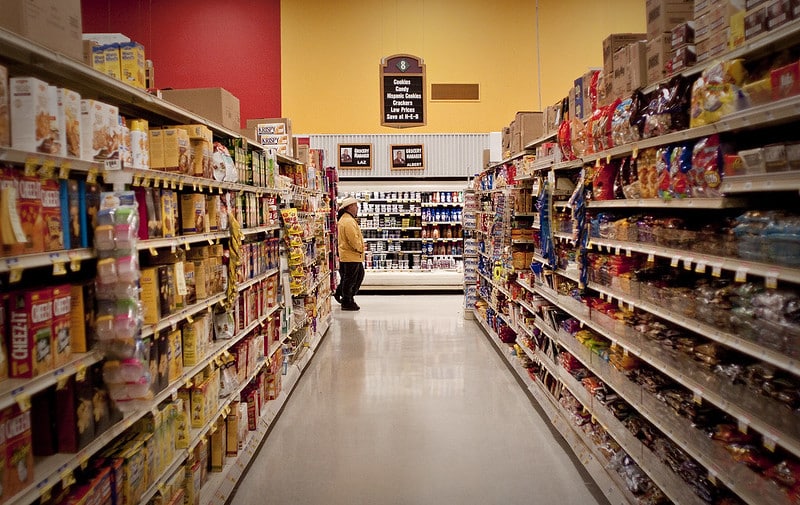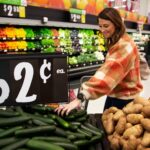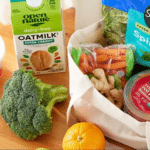
When it comes to saving money and getting the best values at the grocery store, you know the drill – shop around, look for sales, clip coupons. But you may also know what it’s like to have a house full of unhealthy food just because it was cheap. Or having to throw out products that you got for a great price, when it turns out no one in your family wants them. And that’s not really saving money at all.
With groceries costing a lot more than they used to, shoppers are embracing a number of value-seeking behaviors – but not all of them have to do with price.
That’s according to the latest in an ongoing series of grocery shopper surveys by FMI – The Food Industry Association. “U.S. Grocery Shopping Trends – Sorting Through the Value Matrix” finds that nearly all grocery shoppers surveyed consider “getting good value” to be a main priority.
But, FMI asks, “what does value mean… and how can retailers deliver” what shoppers say they’re looking for?
It turns out “price is not always king,” the report found. “Value” to shoppers is now “a more complex matrix of personal values, needs, and priorities.” Shoppers are more likely lately to consider attributes like quality – everything from a product’s freshness, to nutritional value, to sustainability. There’s relevance – a product’s usefulness, and its potential for waste. And there’s experience and convenience – a store that’s easy to get to, get around in, and which makes for a pleasant shopping trip.
Shoppers’ top value-seeking behaviors are a mix among getting the most bang for your buck, looking for deals – and, in some cases, sacrificing those deals by making trade-offs. 59% say they prioritize “only buying the amount of food I absolutely need so nothing goes to waste.” 48% rely on more traditional money-saving strategies like only buying items when they’re on sale, or shopping around for the best prices.
But others define “value” in very different ways – 40% prioritize shopping “at stores that treat their employees fairly.” 35% will “choose the best quality items, regardless of price.” And 31% will willingly pay more just to avoid having to shop at multiple stores.
“Shoppers are increasingly unwilling to sacrifice quality simply for savings,” the report found. And some retailers agree. “When times are tough and you’re paycheck to paycheck, you can’t afford to buy food that nobody eats,” Target’s Chief Food and Beverage Officer Rick Gomez said in a recent interview with CNBC. “So it’s really important to us that we offer value which is a good price, but also really good quality.”
That said, many shoppers are only willing to pay so much. With grocery prices the way they are, saving money hasn’t exactly gone out of style.
Among those shoppers concerned about rising food prices, virtually all of them reported making some changes to their shopping behavior. More than half said they are actively looking for more deals, 41% are buying more store brands, and 31% will only buy certain items when they’re on sale.
To these shoppers, “value” means saving money – but not at any cost. When asked to define what getting a good value at the grocery store means to them, more than half said “getting the most for my dollar.” 36% said getting good products at reasonable prices, 30% said promotional prices, and 27% said they get a good value when they’re able to use a coupon. Still others define value as avoiding waste, eating healthy, and getting in and out of the store quickly – attributes they’re willing to pay a little more for.
“Understanding how dramatically grocery shoppers are expanding their definition of value is imperative for the food industry as consumers adjust their purchasing patterns and habits amid continued economic uncertainty,” FMI President and CEO Leslie G. Sarasin said in a statement. “This report highlights that price is not necessarily the be-all-end-all when it comes to shopper perceptions of value.”
When it comes to “getting really cheap products,” one shopper told FMI, “yes, you haven’t spent a lot, but you get what you pay for.” Another said “it’s not only about saving money. It’s about finding the products I want, to fit with all the other values I have.”
If you’ve ever come home with a haul of products you got for next to nothing by combining coupons and sales, only to find that no one in your household was interested and the products just went to waste, you know from experience that there’s more to getting a good value than getting a good price. After all, no matter how much you save – the most expensive food, they say, is the food that you throw away.
Image source: Andrew White










